Going Home - Your Baby's Development
Cognitive and intellectual
Cognitive development is about your baby’s ability to learn about their environment and to solve problems. The toys, which help a baby’s cognitive development in the beginning are toys that produce cause and effect, i.e. when a baby handles them they do something, e.g. when your child shakes a rattle it makes noise or when they touch a toy, it lights up and plays music. As your baby develops, play will become a vital part of their cognitive development.
- Play develops your child’s ability to think, understand, communicate, make memories, imagine and work out what might happen next.
- Play is one of the ways through which your child can explore the world.
- Children at play are experimenting, thinking, solving problems and learning all of the time.
Spending time playing with your child is especially good for their cognitive development. It helps them to realise they are important. It gives them confidence to keep exploring and learning. By 18 months – 2 years corrected age they will start using trial and error to develop their problem-solving skills, (if they can’t fit a puzzle piece inone spot, they might try it somewhere else) or sorting objects into types by colour, shape or size which helps develop early maths thinking.
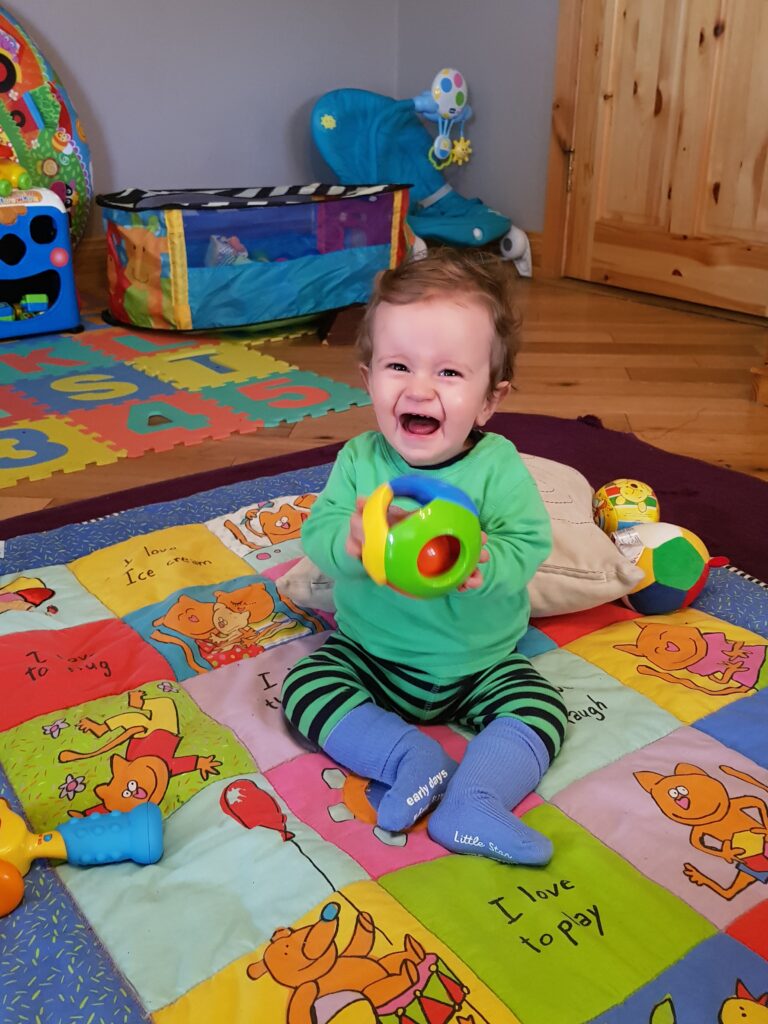
Baby girl toys around her to reach out to
Suggestions to develop your baby’s cognitive skills during their first two years
- Place toys around them to reach out to, touch and explore.
- Hang rattles and toys over their cot or use a play mobile on the floor to encourage your baby to reach and grab.
- Provide stacking pots and blocks; build a tower of blocks for your baby to topple.
- Look at picture books together.
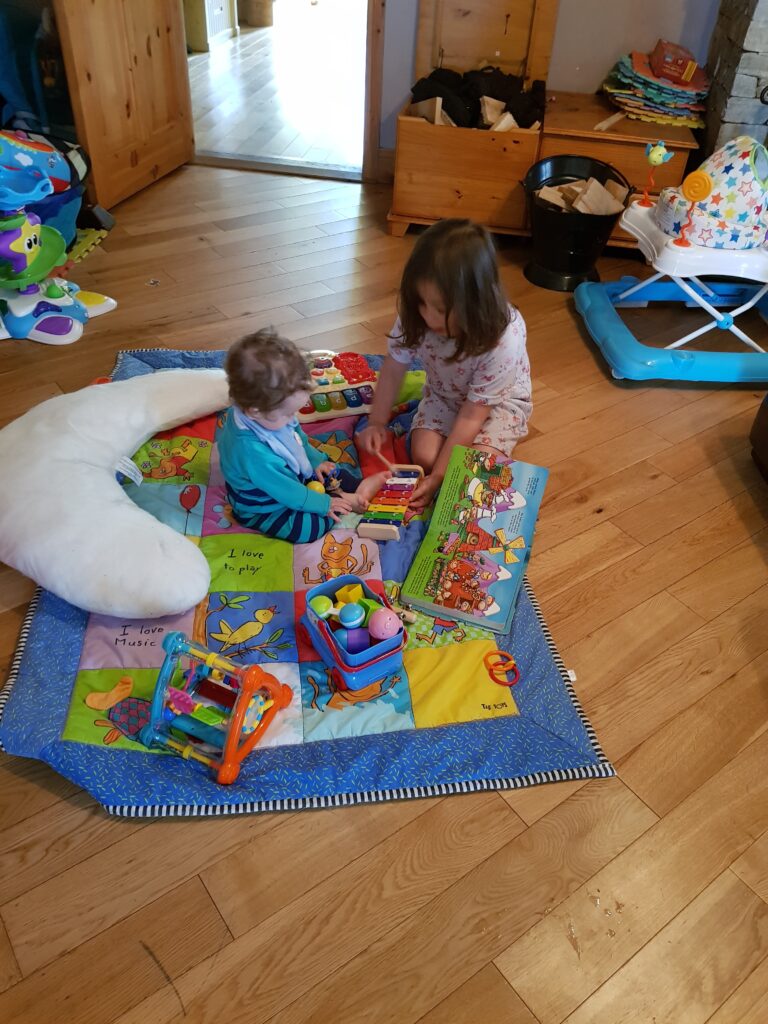
Creative play, siblings love to join in
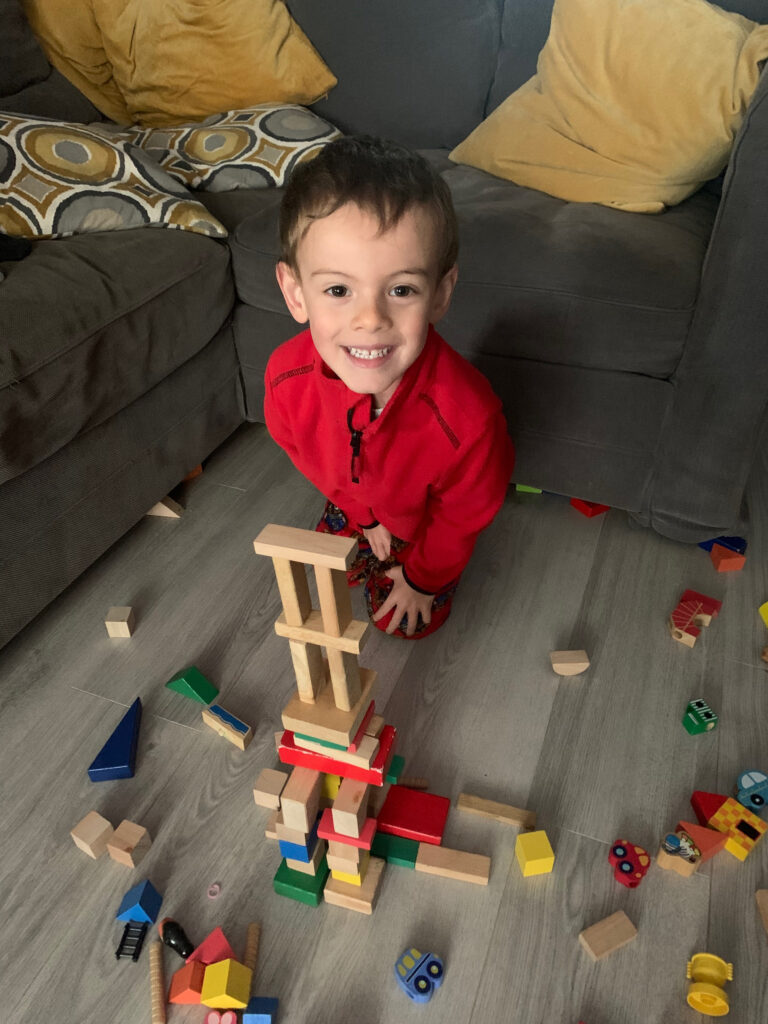
Playing with wooden blocks
ACTIVITIES TO ENCOURAGE DEVELOPMENT
- Talk about everyday things, especially when out and about.
- Introduce nursery rhymes to promote memory and listening skills, e.g. ‘this little piggy’ and ‘pat-a-cake’.
- With simple musical instruments, e.g. xylophone or wooden spoon and saucepan.
- Boxes or beakers for your baby to put things into and take things out of.
- Let your baby watch a toy or ball being hidden and encourage them to find it.
- Encourage creativity skills using crayons and paint to draw.
- Have fun with ‘pretend play’.
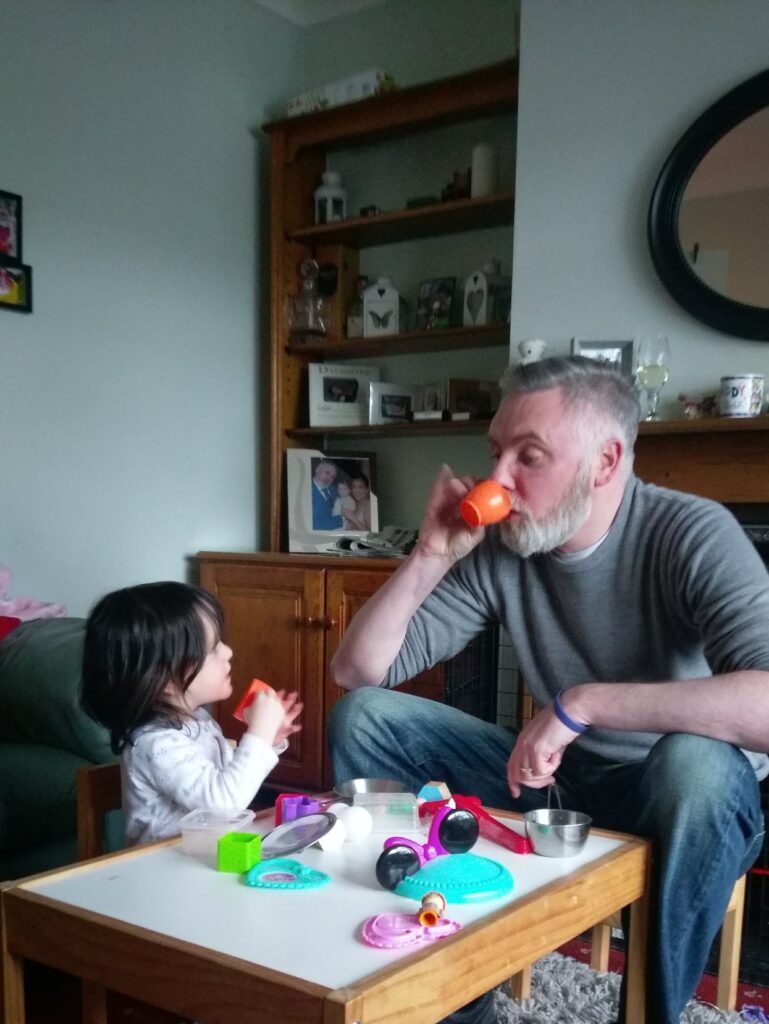
Creative play - Enjoying 'tea-time' together
Tips / suggestions to…Cognitive skills for two years corrected age onwards
- Shape activities; form boards to place shapes or shape boxes for posting shapes.
- Pegboard activities, e.g. placing pegs into holes/peg jigsaws on a form board.
- Two to four-piece jigsaw puzzles, building up to more difficult jigsaw puzzles with four-eight pieces.
- Opportunities for creative or make-believe play, e.g. simple puppets, tea sets, doll play, toy telephone, train set, cars, blocks.
- Opportunities to play with construction toys, e.g. Duplo/Lego.
- Reproducing simple block constructions built by you, e.g. tower, train, a bridge.
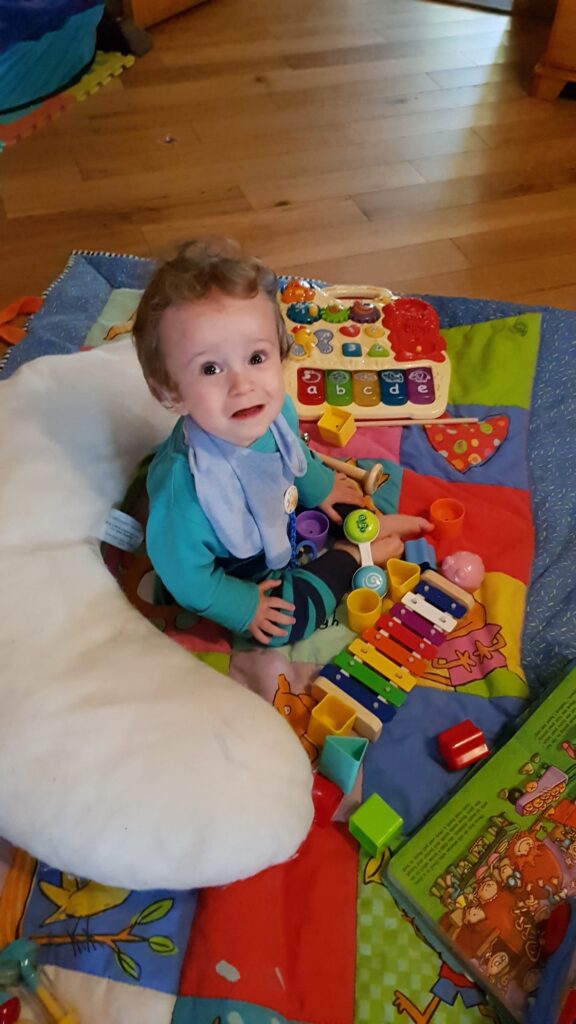
Little boy sitting independently playing with his toys
Language-related cognitive activities, should be introduced at around two years of age
Depending on your child’s language skills – ask your child to:
- Match pictures- show your child a picture and ask them to match it with another picture the same from a group of 3-4 pictures.
- Match colours – present different coloured blocks, e.g. Lego/Duplo to match and group by colour.
- Play games introducing prepositions, e.g. ‘on’, ‘in’, ‘under’, ‘behind’, ‘between’, etc.
- Compare objects to show opposites, e.g. fast – slow, wet – dry.
- Distinguish between sizes, e.g. big and little, long and short.
- Weigh objects to see if they are heavy or light e.g. a stone and a twig.
- Sort objects in your home by shape and size, e.g. square objects (table, box), circular objects (ball, round plate), big duck, little duck, big shoe, little shoe.
- Discuss objects by use, e.g. chair for sitting, ball for bouncing, cup for drinking, spoon for eating.
Screen time, play and toddler cognitive development
Current international guidelines recommend that children under two years should avoid screen time other than video-chatting with people they know. This is because very young children learn best through real-world experiences like physical play, outside play, creative play and social time with family and friends. If you choose to let your child have some digital play, it is best to focus on good quality educational choices for limited time periods that you can watch together if possible. Try to avoid having the TV running all of the time in the background.
